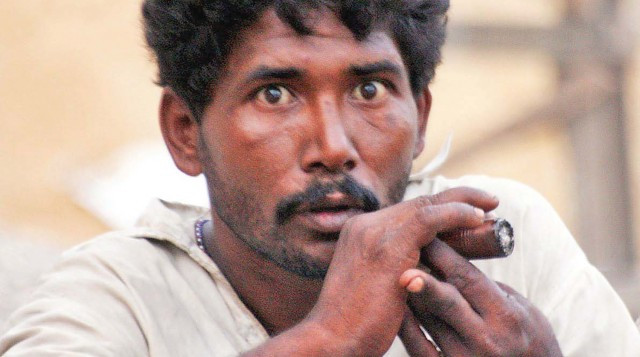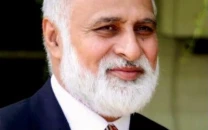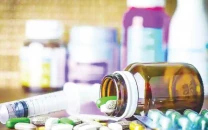Cracking junkies by facilitating their habits
This Sindh based NGO uses a process of “harm reduction” to stop junkies from pushing more drugs into their systems.

Cracking junkies by facilitating their habits
This Sindh based NGO calls the facility a process of “harm reduction”, a method through which they lure a druggie into the fold, allow him to take drugs, tend to his wounds and then make him realize how harmful the habit actually is.
The organisation initiated its harm reduction programme after monitoring the increasing numbers of HIV patients in the country.
In Sindh alone, HIV prevails among 27.3 per cent of the population, the NGO discovered through a 2008 syrvey conducted by UNODC, after which the Pakistan Society workers arrived at the conclusion that the life-threatening disease was proliferating due to the sharing of syringes among drug users.
Forty-year-old Tahir Khan was an opium pusher for 20 years when he discovered that he had been diagnosed with HIV. He realised that he had contracted the disease when he was in the Landhi Juvenile Jail, where he had been sent by his family to restrict his supply of opium. For years, he went without proper rehab until he was taken to the Pakistan Society, when he was able to quit the addictive habit within six months.
A survey by UNODC, conducted in 2008, suggests that there are around 630,000 opiate users, between the ages of 15 and 64, in Pakistan. This constitutes for 0.7 per cent of the population. Around 480,000, or 77 per cent of these people are heroin users.
The number of Injection Drug Users (IDU) in the country was estimated to be around 125,000 in 2006, which was twice the number of IDUs reported across the country in 2000, it was further stated.
In Sindh, there are about 87,000 opiate users, out of which 44,000 are IDUs. Only 30 per cent of these IDUs use new syringes, while 70 percent of them push drugs in the company of others.
Meanwhile, there are 15,000 to 20,000 IDUs in Karachi, the UNODC survey revealed. This is the highest number of IDUs in Pakistan and amounts to more that the total number of IDUs across the rest of the country.
Geeta, who was born in a family that supplied opium, got addicted to opium after she tried it once “just for fun”. She was using for 12 years when she lost her only son in a broken marriage and decided that she must quit the habit. She was cured of the addiction within four months of joining the Pakistan Society. “They cured us through love and understanding, not force,” said Geeta while talking to The Express Tribune.
“We help them psychologically, physiologically, vocationally and emotionally,” said Dr Saleem Azam, the president of the Pakistan Society. The workers start treating addicts through the harm reduction process, which allow the latter to quit their addiction through a slow and patient procedure, Azam told The Express Tribune while explaining how the NGO is facing newer challenges in the shape of newer drugs.
“While opium, cannibal and chars were the only drugs in the past, ecstasy has also made a recent entry in the list of commonly used drugs,” he said, adding that these drugs come in the form of tablets while some other types of drugs are being imported as well.
While 11 anti-narcotics and drug-control agencies are working for the government, the use of narcotics is increasing day by day and alarming new drugs are entering the market, he said, claiming that the federal and provincial government have yet to take their responsibilities, regarding the alleviation of drug abuse, seriously,
The government should make a single committee to deal with the matter so that drug abuse is minimised in the country, Azam concluded
Pakistan Society has been working across the province since 1982 to bring down the number of drug pushers and cure the addiction to narcotics.
So far, the NGO has managed to cure almost 100,000 drug addicts who have approached its outreach centres in Karachi, Hyderabad, Sukkur and Larkana with the support of the World Health Organisation (WHO), UNODC and the Canadian Development Agency.
Published in The Express Tribune, June 26th, 2010.



















COMMENTS
Comments are moderated and generally will be posted if they are on-topic and not abusive.
For more information, please see our Comments FAQ